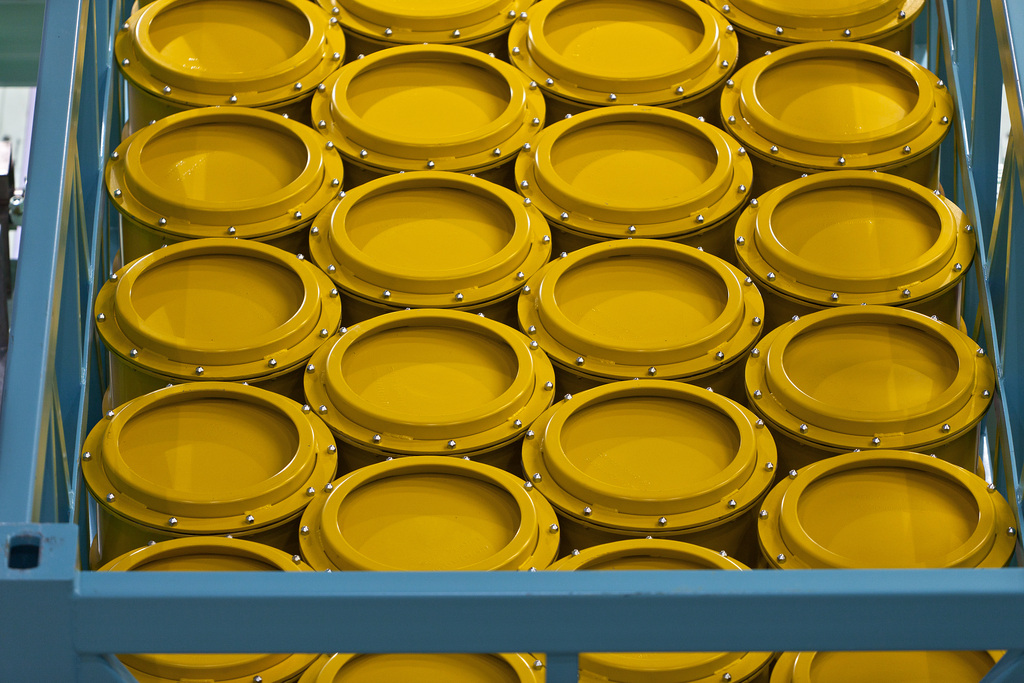
Government slammed for creating extra costs for nuclear plant firms

The operators of Switzerland’s nuclear power plants have strongly criticised a reform of regulations on decommissioning and waste disposal funds.
The reform, due to take effect at the beginning of January next year, includes a reduced yield of the two funds but also does away with a 30% safety margin. The companies affected said the reform will have far-reaching consequences and lead to additional costs for the three operating companies.
“It will tie up funds for decades as well as marginalise the operators in the fund management bodies,” said AlpiqExternal link in a statement.
The company AxpoExternal link said the money will be lacking for investments in the planned restructuring of the Swiss energy supply.
BKW/FMBExternal link, which operates a plant outside the Swiss capital Bern that will be taken off the grid next month, said the government decision was damaging the Swiss economy and threatened to take legal measures.
All three companies argue the extra costs will be in the tens of millions of francs range. The government put the figure at CHF88 million (CHF89 million) per year for each company.
The energy ministry last year announced that the costs of decommissioning the nuclear plants and dealing with radioactive waste will be more than CHF1 billion above previous estimates.
The two funds were set up in 1984 and are aimed at covering the costs of decommissioning and dismantling nuclear power plants at the end of their useful life, together with the costs of disposal of the waste.
The owners of the five nuclear reactors as well as the central intermediate radioactive waste repository are required to pay contributions.

More
Last stop for nuclear waste before burial

In compliance with the JTI standards
More: SWI swissinfo.ch certified by the Journalism Trust Initiative





























You can find an overview of ongoing debates with our journalists here . Please join us!
If you want to start a conversation about a topic raised in this article or want to report factual errors, email us at english@swissinfo.ch.